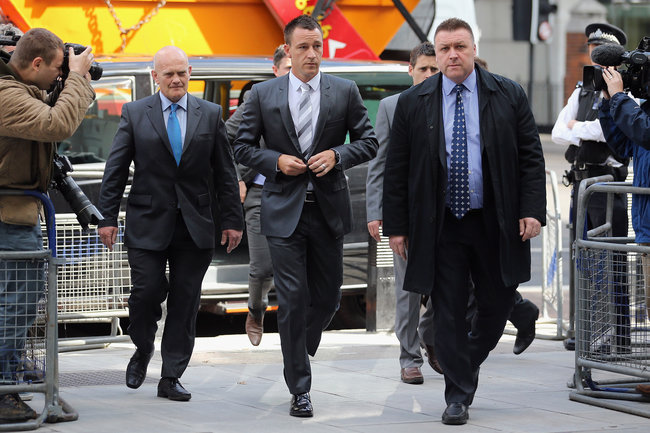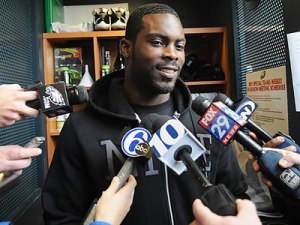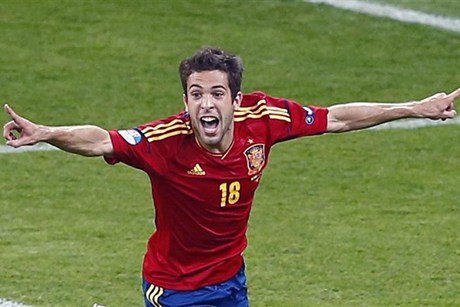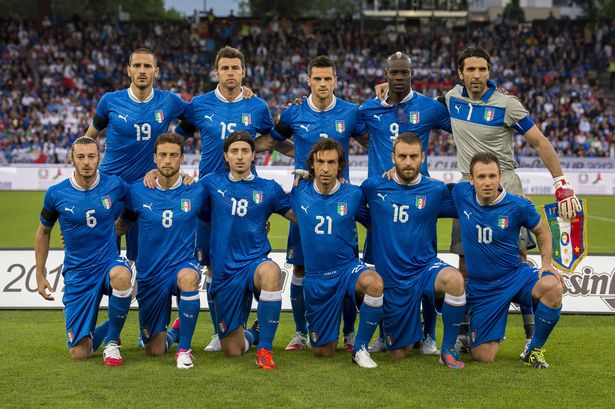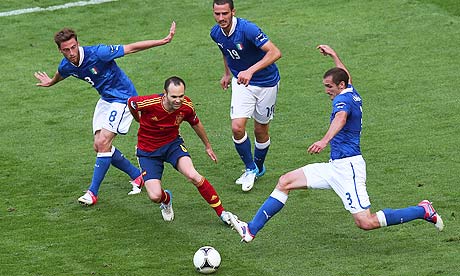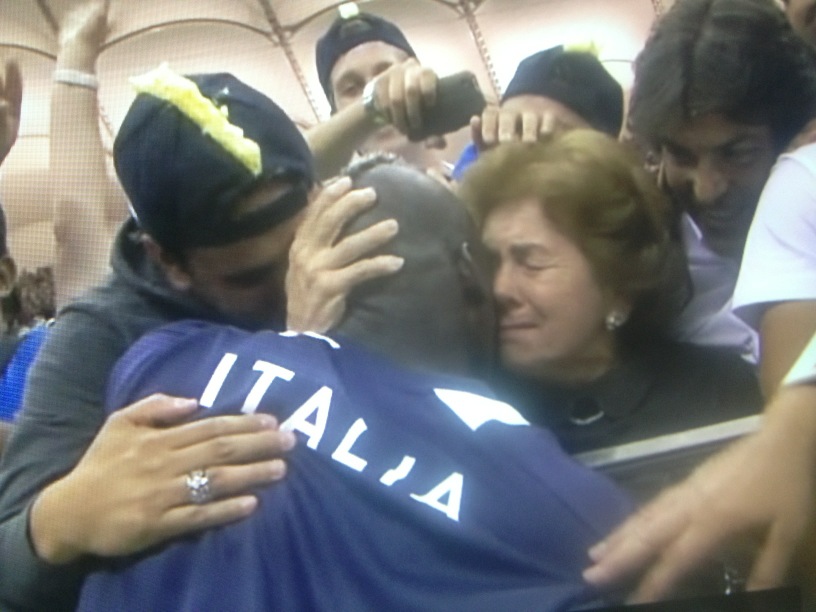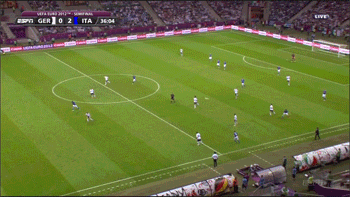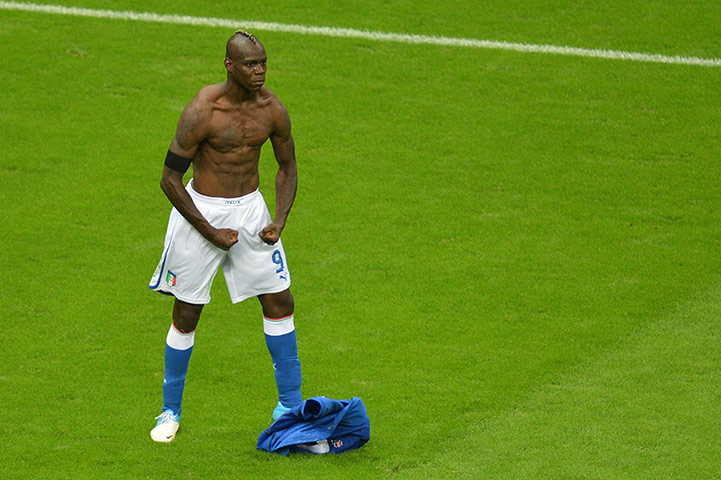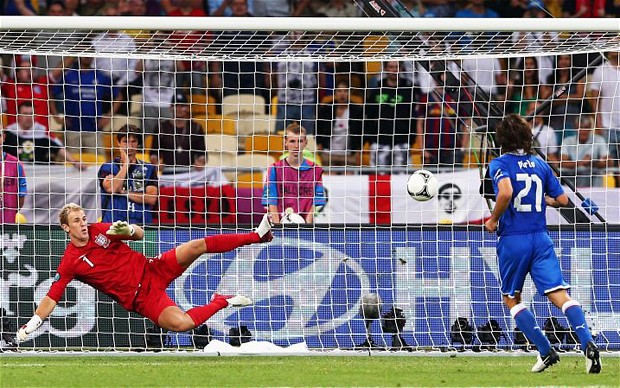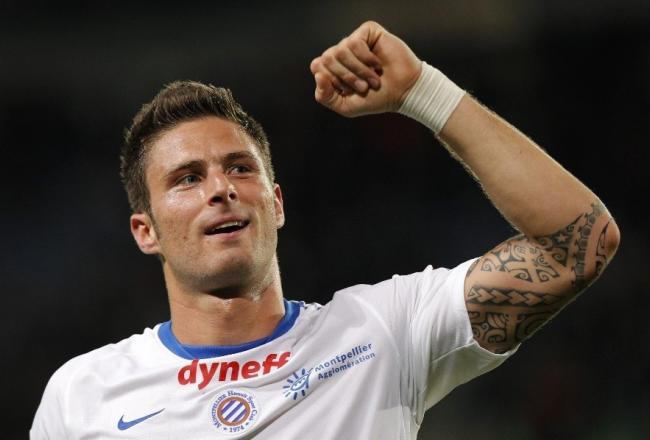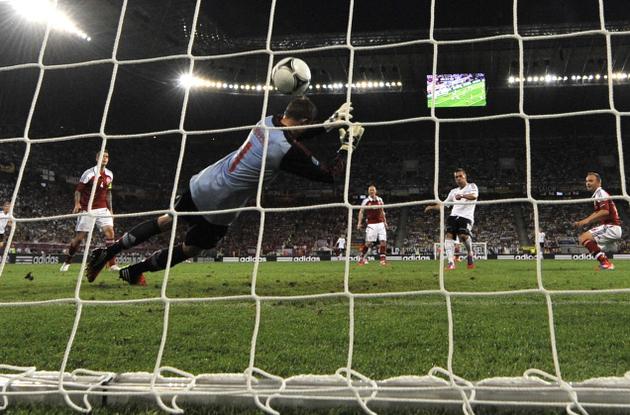Recently, Michael Vick appeared on ESPN’s Pardon the Interruption (PTI). Vick appeared on PTI to plug his new book, Finally Free: The Power of a Second Chance. In his nearly eight minute interview, the Philadelphia Eagles star openly acknowledged his problematic past and while contrite and thoughtful he also admitted the book was also an attempt to end the conversation about his history. “We can talk football, we can talk other personal things but let’s not talk about my past, let’s leave it where it is.”
Vick’s career and life provide insights into several aspects of sport including race, and media rehabilitation. After serving hard time in prison for dog fighting, Vick’s efforts in rehabilitating his career, image, and persona have been notable. Finally Free is really the last leg in a Michael Vick public relations campaign to undercut those who see Vick as little more than a talented, underachieving, amoral mercenary dog torturing athlete.
For years, Vick has worked with the Humane Society filming PSA’s and making appearances in the name of animal rights. Yet, as Vick seems to becoming full circle, this summer a prominent English footballer finds himself regarded as a talented but maligned influence. Much like Vick, the trial of John Terry provides insights into many of the same issues, but knowing Terry’s character (as will be explained) a reversal of Michael Vick proportions seems unlikely. Instead of the thoughtful, long term, self-reflective, and honest effort by Vick, Terry should go for the superficial answer much like his manic violent Newcastle peer Joey Barton.
The Trial of the Century?
In the second week of July, one of the most anticipated summer trials in all of England ended with a predictable acquittal. John Terry, Chelsea’s stalwart defender and starter for the English national team, was found not guilty of racially abusing another player. Accused of directing a racial profanity toward QPR defender Anton Ferdinand (Terry allegedly called him a “black cunt”), Terry professed his innocence, even taking the stand to relate to the court how soccer players interact on the pitch.
The trial itself played out in tragic-comic fashion via the New York Times. Needless to say, the language exchanged between opposing players at any level can reach rather dicey levels as insults directed at one’s family members prove quite common. In college, I roomed with a female soccer player who admitted to once using a remark about child molestation to get under the skin of the forward she was marking and that was Division III soccer. Between amateur and professional male athletes, mothers, sisters, girlfriends and wives bear the brunt of such insults, just ask Zidane who sacrificed France’s 2002 World Cup to defend his sister’s honor (Italian Player Marco Materazzi later admitted to more or less calling her a whore). The Daily Mail quoted Terry pointing out that “players routinely tell each other they ‘s***’ each other’s partners.” It got even worse, as during testimony Terry further admitted “that conversations between players descend to degrading levels during the heat of battle in the Barclays Premier League.” Do tell?
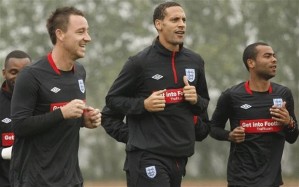
Of course anyone who uses the Times as a source for such prurient details was disappointed argued the Atlantic’s Alexander Abad-Santos. Abad-Santos pointed out that the Times policy of neutering language to avoid controversy had turned “a NSFW cluster-cuss into the most sterile argument ever,” he noted. At least the Times gave us all stateside some new slang: handbags as in “this whole thing is handbags” or much to do about nothing as Chelsea teammate Ashley Cole described the whole affair. Terry portrayed his interaction with Ferdinand similarly. “As the argument on the field became more heated, Mr. Terry at one point compared Mr. Ferdinand to male genitalia, and then to female genitalia, in consecutive sentences. Most of these constituted ‘handbags,’ or ‘normal verbal exchanges between the players,’ reported the Times.” In the end, though damaging, the Times coverage remained so awkward, one could be forgiven if distracted. Again, this played to Terry’s favor, as the ridiculousness of this aspect of the trial overshadowed its more serious themes. Remember, Luis Suarez received an eight game ban for a racial outburst toward Manchester United’s Patrice Evra and then inflamed matters when he refused to shake Evra’s hand several weeks later when the two teams met in competition. By contravening pre-match tradition, Suarez reignited questions about his character and apparent racism. It got worse last week when Suarez blamed his ban and subsequent controversy on Man U’s “political power.” Is Suarez the Richard Nixon of the EPL, constantly and unfairly under siege, abrasive and contentious but oddly talented and always the victim? Who’s to say?
Granted some might argue, John Terry’s alleged racism though vile, doesn’t hurt anyone or thing physically while Michael Vick’s actions resulted in mutilated animals and disturbing levels of violence. Others might point out that discursive racism can lead to violence against ethnic, racial, and religious groups accordingly, John Terry needs to be punished for contributing to such discourse. In Vick’s case race played an important role, but secondarily. Race played a role in perceptions or how people viewed him. Most people – black, white, brown, yellow etc – were rightly horrified when the stories of his dog fighting facility emerged. The reaction to this might have been racial but the underlying facts of the case were not. From established press, (ESPN The Magazine published a controversial article titled “What If Michael Vick were White?”) to the attentions of more academic bloggers, numerous outlets have reflected on what Vick’s career and image mean. Sure Vick’s case involved very volatile emotions regarding animal rights, but plenty of non-white folks feel strongly about their animal brethren.
In regard to John Terry, his case shows that lingering pockets of racial tension persist in the EPL and more widely, Europe. Though numerous ex-coaches and current teammates vouched for his impeccable unbiased nature, others remained silent on the issue including Rio Ferdinand, Anton’s brother. Racism has been a recurring problem in soccer across “the continent” and internationally. Franklin Foer demonstrated sectarian, ethnic, and racial hatreds perpetuated by soccer fans and players in various parts of Europe in his book, How Soccer Explains the World. More recently, Italy’s Mario Balotelli accused Croatian fans of making racist taunts during the two teams’ encounter at this summer’s European Championship. Go to present day Poland and Ukraine where some clubs’ fans openly employ Nazi salutes and make references to the holocaust. When the Times noted that the trial revealed divisive schisms in “the close-knit world of Premier League soccer,” it seemed unsurprising. After all, though Chelsea won the Champion’s Cup this year, they struggled through their domestic campaign. Rumors floated around that the team’s Spanish and Portuguese speakers supported doomed coach Andre Villas-Boas (AVB) while the older English speaking players resisted the European tactics he brought to the table. Soccer’s swirling mix of cultures and styles, though enormously beneficial on the whole can sometimes clash. Terry probably deserved some credit/blame for AVB’s departure mid-season.
Of course, the efficacy of such trials and the FA general policy deserve some scrutiny. The FA has rightly targeted racism to be squashed; undoubtedly a noble and worthwhile effort. However, the effects of this policy seem less clear. Suarez remains unchanged by his punishment, should we expect any different from Terry? Add to it, that following the trial, Rio Ferdinand fell under FA investigation for replying in the affirmative to a tweet that Ashley Cole (who is black) amounted to “choc ice” (basically meaning black on the outside, and white on the inside) for testifying in Terry’s favor. Ferdinand responded to accusations of racism, how else, via twitter: “What I said yesterday is not a racist term. It’s a type of slang/term used by many for someone who is being fake. So there.” Should Ferdinand be reprimanded? Does the FA want to adopt the heavy handed tactics of Roger Goodell’s NFL? When Emmanuel Frimpong of Arsenal (on loan to Wolves) responded to a hostile posting by a Tottenham Fan with “Scum Yid”, Frimpong promptly removed the comment from his twitter feed, but shouldn’t he be punished too? Add to it, the complexity of Tottenham’s identify, which Foer documented. Having once been home to a large Jewish fan base, many Tottenham fans adopted the term Yid as a means to undercut the term’s viciousness. “Instead of denouncing the Jews as pollutants to the nation, chunks of the working class have identified themselves as Jewish, even if only in the spirit of irony.” (Foer, 85) While an improvement on anti-Semitic violence, it still leaves Jews as cartoons, outsiders, or “others” in European minds. The point is the FA policy and its ramifications can be dizzying.
With that said, the fact that Terry had to sweat it out on this, makes this writer feel better. Yet, enough doubt remains regarding his true racial beliefs that it might be good to consider the full man. When one does, you find a man guilty of much more than racism. Outside his significant soccer talent, consider his other claims to fame. On 9/11 he drunkenly mocked American tourists at Heathrow Airport. In January of 2002 Terry assaulted a nightclub bouncer resulting in his suspension from the English national side thereby forfeiting his shot at that year’s World Cup. In November of 2006, Terry allegedly racially abused Tottenham’s Ledley King. A 10,000 pound fine was levied for “inappropriate conduct.” He cheated on his fiancé Toni Pooole with a 17 year old girl in a London parking lot in 2007. Three years later, Terry famously slept with the girlfriend and of his best friend and English teammate Wayne Bridge. This led opposing fans to chant “Oh wherever you maybe, don’t leave your wife with John Terry!” Sure there are other incidents but really, you get the point.

Even if John Terry needed a Michael Vick sized make over, I’m not sure he could pull one off. Intellectually, Vick’s pretty sharp, John Terry reminds this writer of Kevin Kline in A Fish Called Wanda. So how does the former captain of the English national team rehabilitate his image? Well first, play well and win; avoid being sent off in critical Champion’s Cup matches for openly kneeing people in the back. After that it is simple really, John Terry needs to open a twitter account and grow a mustache: the superficial answer for a superficial man.
John Terry, Joey Barton, and the Future of Football Public Relations
Does that seem flippant? Perhaps, but new social media like twitter, not around when Vick returned to professional athletics, enables athletes to escape the “filter” of the traditional media. Certain stylistic accoutrements like wild haircuts or distinct facial hair do well to draw attention away from volatile personalities. Vick’s earnest and hard won second chance came as result of jail time, open contrition, athletic success, and persistent attempts – through PSA’s and now his book – to change the conversation about his image. The example of Joey Barton provides the 2K12 route to “rehabilitation.” Be assured, as evidenced by Barton’s season finale, the route remains skin deep, but are there more apt words for Chelsea’s 31 year old defender?
Much like Terry, Barton’s personnel history vibrates with the controversy, but perhaps more disturbingly than his Chelsea counterpart. In 2002, Barton extinguished a cigar in they eye of his teammate Jamie Tandy. In 2007, a fight between himself and teammate Ousmane Dabore ended with Dabore bleeding from the ears. Speaking on the issue four years later, Barton expressed little remorse: “Frankly, Ousmane is a little pussy. Where I come from, when you fight there is no rule. You fight ‘til it’s over.'” Soon after the Dabore exchange, Barton assaulted a man outside a Liverpool McDonalds, punching him twenty times in the head. Barton served 77 days in prison for his crime. Yet, if not for a psychotic outburst in his team’s season ending match this year, in much of the public’s eyes Barton had been rehabilitated. Granted, his bizarre antics against Manchester City (resulting in a 12 game suspension next year) poisoned much of the work he had done in rebranding himself, but his example would serve John Terry well.
Sometime in 2009, Barton opened a twitter account and began randomly posting philosophical twitter messages. His tweets ranged from quotes by George Orwell (“In times of universal deceit, telling the truth will be a revolutionary act.”) and Fredrich Nietchze (“Whoever feels predestined to see and not to believe will find all believers too noisy and push; he guards against them.”) to political diatribes (“Why are British troops in conflict zones risking their lives, on America’s behalf? Supporting a fascist regimes ideologies? Bring them home.”) to an homage to the Smiths (“There is a light that never goes out”………The Smiths! Best song ever written. Thanks marr / mozza for getting me through that drive….”) He visited art galleries and told soccer fans all about them.
Then in 2010, Barton glommed on to one of the oldest tricks in the book: the mustache. The midfielder promised not to shave his newly acquired mustache until Newcastle recorded a victory. It didn’t take too long, by August 22, Barton and his Newcastle teammates had thumped Aston Villa. Still, by this point, Barton had tapped into his inner Magnum P.I. His twitter feed and mustache drew attention away from his clearly unstable nature. Sure we used to equate mustaches with totalitarianism (has their ever been two more famous mustaches than those of Uncle Joe Stalin and Adolph Hitler), but today even Michael Jordan rocks a mustache that many argue looks very similar to that of a certain genocidal German. Today’s famous mustaches range from the conservative American Patriot Ron Swanson (“Parks and Rec”) to the businesslike Stringer Bell (The Wire) to ubiquitous “ironic” or hipster mustache (really a character like Swanson and Bell unto itself – see Jude Law here for celebrity example). People began talking about the quirky, mustachioed twitter happy Barton, not the thuggish freak that served over two months in prison.

Joey Barton’s angled masterpiece was a combination of Brooklyn Flea artisan and Toledo used car salesman; in other words, “creative everyman”, if everyman only sold tricked out El Caminos that came with a free Rites of Spring discography. With a mustache, Joey Barton’s previous violent outbursts became ironic acts of cognitive dissonance. “I beat that man senseless because of how futile I think violence is, don’t you get it? I tweet Nietchze!” In the same way, Terry needs to grow a mustache and maybe tweet out some obscure Foucault quote about bio-politics or something. Then his acts of racism become nothing more the deadening affects of governmentality. See you aren’t even sure what that means and honestly neither am I. That’s the point. Terry’s set the bar so low, even a spark of intellect promises a wildfire of good publicity. Besides, all that talk of salty language at the trial reinforced the idea that players say such inappropriate things, John Terry’s outburst, whatever it really was, simply reflected this. All Terry needs to do is back that up with some reference to the power of discourse and he’ll have an army of anthropologists looking to complete their dissertations on the culture of profanity in football.
One might suggest fellow alleged racist Liverpool’s Luis Suarez grow his own mustache. Yet, as Roger Bennett and Michael Davies of the Men in Blazers podcast are found of pointing out, Suarez has Anne Hathaway sized teeth: the kind you see in nightmares about the dentist or eating carrots. No, a mustache on Luis would leave him resembling one of those caricature drawings you get at theme parks. Mr. Suarez will have to discover some other way to hide his unpleasant personality and casual bigotry.

In today’s over saturated media, nobody reads books. Vick deserves credit for a well earned climb back to respectability. Some will forever see him as a torturer of animals and this is how it must be. Actions have consequences, in addition to jail, there will be some people he will never reach. Vick served two years in Leavenworth. That’s real time alone, in a very bad place. So even if you hate him, you must admit he’s done some thinking on his crime. John Terry, Luis Suarez, and Joey Barton are different sorts who lack the sincerity of Vick and in Suarez’s case any sense of responsibility. Likewise, John Terry thinks his trial “handbags”, so a real conversion appears unlikely. Say what you want about Vick, but the man has suffered for his crimes and reflected upon them honestly. If we must settle for mealy-mouthed P.R. campaigns dedicated to scrubbing John Terry’s history clean let it be one as entertaining, hirsute, and schizophrentic as that of Joey Barton. That way fans will know it’s all a show and won’t be disappointed when Terry, Suarez, Barton or some other EPL lug decides to travel down the rabbit hole of racism.

